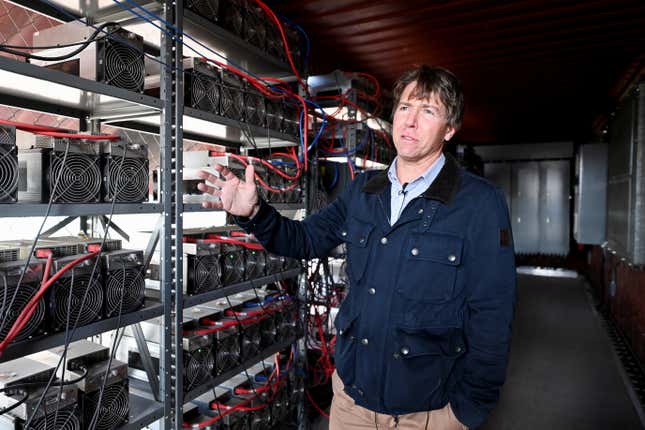
After successfully completing its “halving,” Bitcoin is sitting strongly at $66,000, and crypto stocks are in celebration mode.
Now people are wondering what will happen to Bitcoin miners given that the reward has decreased from 6.25 Bitcoin to 3.125 Bitcoin.
Some are saying that generative artificial intelligence may soon play a role. Adam Sullivan, CEO of Core Scientific, a Bitcoin mining firm, believes that the infrastructure of Bitcoin mining needs to be improved, and AI could be very helpful in generating Bitcoin, per a CNBC report. Several mining companies already operate or are planning to operate AI, including BitDigital, Hive, Hut 8, Terawfulf, and Core Scientific, per CNBC.
Rob Chang, CEO of Gryphon Digital Mining and former CFO of Bitcoin mining company Riot Platforms, told Quartz via email that to “survive” halving events, miners must become as operationally efficient as they can, and AI could play an important role.
“The focus has also branched into AI given its attractive, new kid on the block profile, and the adding of which does not generally change a company’s current profile,” he wrote.
However, using AI for mining is not without its risks, he added. “The focus on a quality operation at times comes at a cost of growth, which investors tend not to pay for in the beginning—especially in hot markets,” he said.
“The benefits of being the tortoise to the growth hare is that investors tend to see the benefits of quality management only after a down cycle has occurred and the questionable decision making of the growth focused miners are exposed.” Chang clarified that diversifying into AI or staking is not necessarily a bad move, but one must carefully consider how the benefits compare with the downsides.
Asked about how Bitcoin miners can function as the reward decreases, Chang said that even miners without the latest generation of equipment can remain competitive. This can be achieved by operating within a highly efficient and low-cost framework.
“This typically means setting up in regions with significantly lower electricity costs, such as areas with surplus power generation that lack sufficient local demand,” he wrote.
“These geographical advantages enable operations with older, less efficient machines to maintain profitability due to reduced operational expenses.”